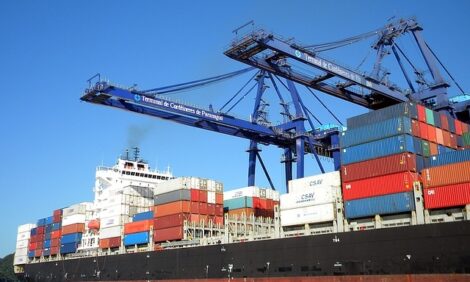



Middle East Trade Important for Australia
AUSTRALIA - The only way to secure a future for Australia’s livestock export trade is to ensure animals are being treated in line with international standards. That means putting animal welfare front and centre through the implementation of the export supply chain assurance system (ESCAS), said Minister Joe Ludwig, on returning from a trip to the Middle East.This is the single biggest reform in the history of the live export trade and the government is supporting exporters to implement these important changes.
"On 21 October 2011, I announced new regulations in Australia's live export industry as part of the government's response to the independent Farmer review."
The government accepted all of the Farmer review recommendations as well as the findings of the Industry-Government Working Groups (IGWGs). The Farmer review recommends that the ESCAS apply to all existing Australian markets for the export of animals for slaughter by the end of 2012.
After consultation with industry in the IGWGs, three tranches were proposed based on the size of each market and the complexity of the reforms. These tranches aim to have 75 per cent of all markets covered by the new framework by the end of February 2012, and all remaining markets covered by the end of the year.
"I recently returned from the Middle East where I led a delegation to the Kingdom of Saudi Arabia, the State of Kuwait, the Kingdom of Bahrain and the State of Qatar.
"The new regulatory framework will apply to Kuwait, Bahrain and Qatar by the end of February, and to Saudi Arabia by the end of August.
"Given the responsibility of exporters for implementing the new framework for the livestock trade, I felt it was important I was accompanied by a delegation of Australian industry representatives and exporters to these markets. The delegation included the Cattle Council, the Australian Livestock Exporters’ Council, Sheepmeat Council of Australia, Livecorp and a number of individual exporters."
Industry representatives had the opportunity to discuss implementation issues with importers in each of the four markets in the Middle East. These meetings were very constructive and went a long way toward progressing the implementation of Australia’s ESCAS.
The delegation met with the government representatives and industry in each of these countries to brief them on the new supply chain assurance system, and explained how the new system will secure a stronger trading future and provide more certainty for trading partners.
"Australia is committed to a strong and viable livestock trade which ensures animal welfare outcomes meet world standards as part of the sustainability of the trade and this message was clearly communicated to our trading partners.
"The dialogue on reform started well before this delegation and will continue with our trading partners and with industry to see these reforms implemented and build a strong future for the live export trade.
"The Australian delegation and our trading partners discussed the work that has already been undertaken to implement the new system. I heard first-hand how exporters are progressing and discussed what remains to be done. I visited a number of feedlots and abattoirs on my visit.
"I am pleased by the commitment of the industry to see this trade continue, and to ensure ESCAS is implemented within the required timeframes."
On his return from the Middle East, Andrew Ogilvie, President of the Cattle Council, stated: “The Cattle Council stands committed to working with Government and Industry in assuring the welfare of Australian livestock, while maintaining a sustainable live export industry. ESCAS will ensure that outcome.”
This is echoed throughout the industry and Chairman of the Australian Livestock Exporters’ Council, Peter Kane reiterated: “We are determined to deliver the successful implementation of the new regulatory framework in the Middle East.”
The Gillard Government will continue to work with industry bodies and exporters to get the new system in place, including through the Industry-Government Implementation Group (IGIG).
"We are taking action with industry to secure a strong future for Australia’s live animal export trade in the biggest reform of this sector in its history," said Minister Ludwig.
"There is still a lot of work to be done in the next month but I am confident that industry and government is doing the work needed to implement the new system. We are going to work together, through the IGIG and continued discussions with our trading partners, until it is in place."
Further Reading
| |
- | Go to our previous news item on this story by clicking here. |
TheCattleSite News Desk


